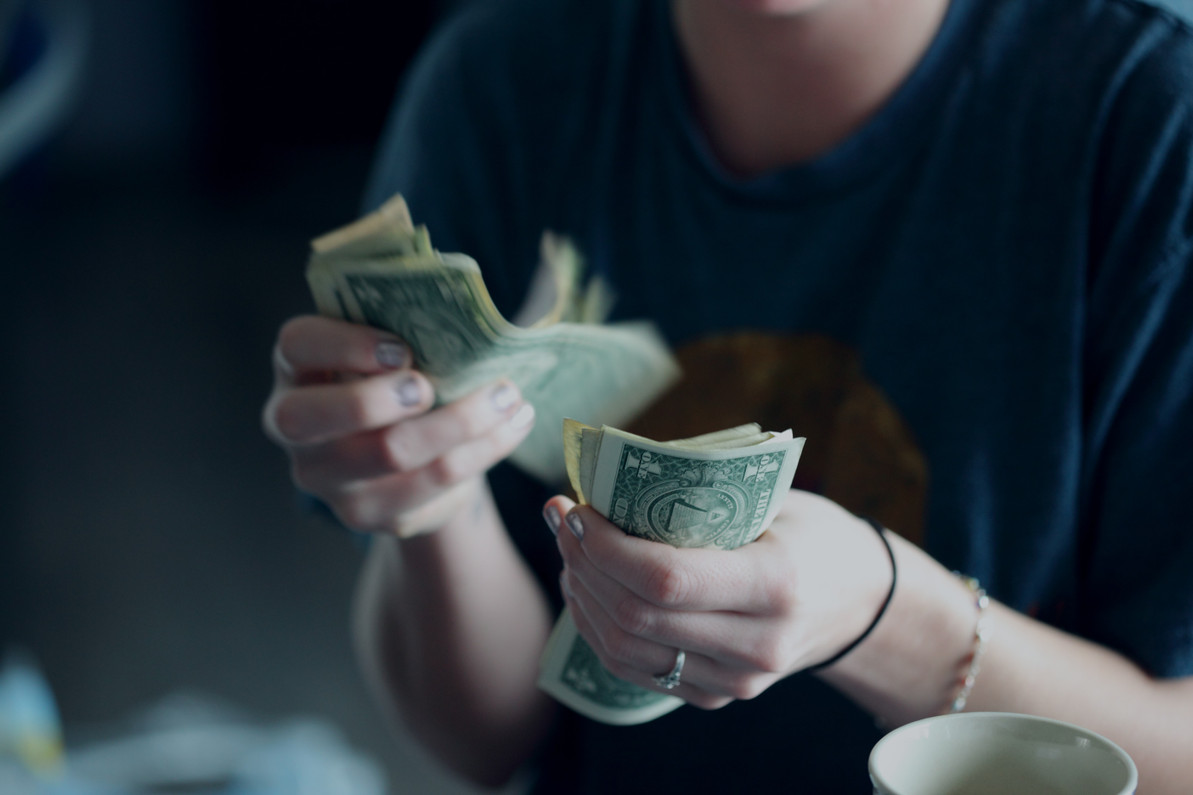The Power of a Purchase: How Consumer Choice Helps Us to Fight for Our Future
We all know by now that money is really what makes the world spin, no matter how much we wish it could be otherwise. "All you need is love..." and food to eat, water to drink, a place to sleep, clothes to wear, or even just something to occupy your time so you don't go mad. We all need money, we all continuously spend money, and we can sometimes start to feel powerless beneath the monotony of it all; spending money just to survive or find fleeting joy in soon-to-be forgotten goods rather than truly living and enacting our passions. Yet sometimes we also forget that money is power -- not just in the hands of the rich, but for the rest of us, too.
How we spend our money matters, whether the purchases are small or large, frequent or irregular, or anywhere in between. I'm not just talking about how your spending patterns may reflect on your wallet (although that daily Starbucks coffee is definitely not helping matters) but more importantly the implications that any shopping decision has for the planet. Every purchase we make, no matter how small, rings up a very long list of external costs and the environmental consequences that they entail.
Including...
- Depletion of all raw materials used
- Ecological destruction, pollution, or waste from how they are extracted
- Carbon emissions or other harm related to shipping the raw materials
- Enormous amounts of water and air pollution or wasted materials (namely water) created during manufacturing
- Additional carbon emissions and other environmental damage related to shipping the completed products
- All consequences (including unnecessary waste and pollution) related to sourcing, producing, and using any packaging materials for the completed products
- Any pollution or other environmental harm stemming from the disposal of the products and their packaging
- Energy/electricity use for all of the above, and the many complex consequences of how that energy was obtained.
... and many more in between.
For each product you buy, you are not only expressing your demand for that product, but you are also showing your support for the companies who produce and sell the product and for every single policy they have. The money you give a company through your purchase shows them that all of their current practices, including but not limited to all of those mentioned above, are not only acceptable but actually profitable. With your purchase you are stating that no matter how they operate and treat their employees or the environment, they can successfully continue business as usual and still turn a profit, giving them very little motivation to do things differently or improve on their current practices.
Unless, of course, they are given substantial reason to believe that changing their policies will cut their costs or increase their profits. Whether they care about their customers and the environment or not, companies definitely care about their profits, so use your voice where it matters the most and exercise your consumer choice.
Choosing not to buy something from a company can be just as important as the decision to support them. When a company sees a decrease in their sales or isn't as successful as they'd hoped to be, this will spur them to reanalyze their business strategies to see how they might become more appealing to consumers. Over time, with enough demand for eco-friendly brands with truly green policies, businesses will hop on the bandwagon and adopt more environmentally-friendly practices to better align with the values of their customers in hopes to see higher profits. Sharing exactly why you do or don't support a business, whether to them directly or to your friends and family on social media, only expedites this process.
So do your part in making ethical consumption the only consumption. You never know when your comment or your purchase could be the very last straw to break the camel's back and change the game; whether it be for one company or for the world.
Recent Posts
-
Voting for Climate Action
On November 18th, 2000, Judge Charles Burton held a paper ballot up to a ceiling light of the Palm B …Oct 30th 2024 -
Celebrating Halloween Sustainably
2000 years ago, in what is now Ireland, the United Kingdom, and Northern France, the ancient Celts g …Oct 30th 2024 -
Climate Denialism
In 1859, a 39 year-old Irish physicist named John Tyndell was ecstatic to publish the results of his …Oct 17th 2024




